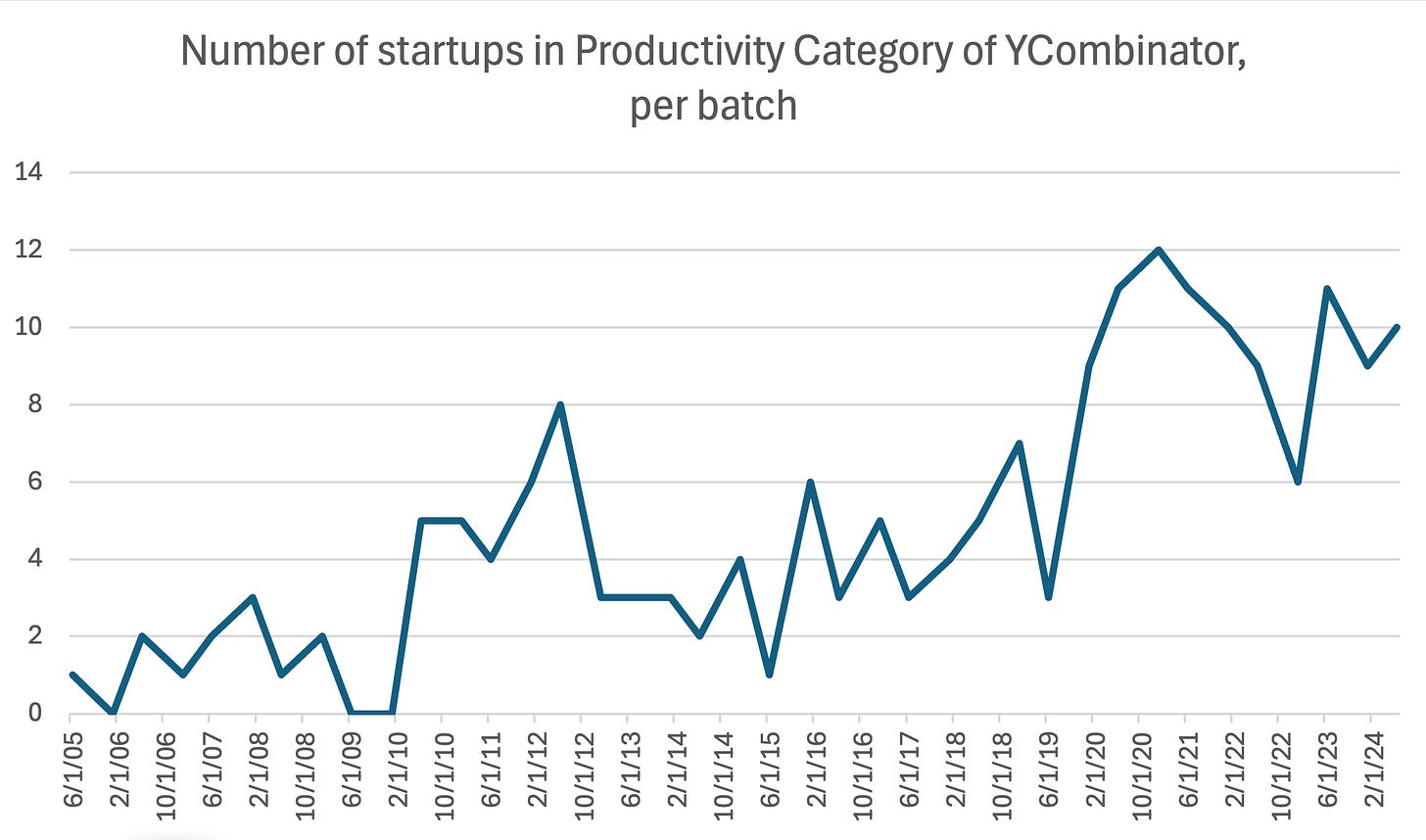Bas' Take on Tech: It's the interest rates
Hi there,
thanks for reading my tech newsletter about the recent buzz in tech.
Have a great week ahead!
🧑⚖️ It’s the interest rates
“I’ve been working with the internet since ‘95'. You see the pendulum move back and forth” – A short clip from the “We Are Developers World Congress” caught my attention. David Heinemeier Hansson, known as DHH for the creation of Ruby on Rails, said these words yesterday. He continues saying that the era of “free money” that we’ve seen from 2009-2021, has come to an end (“at least for a while”).
That’s not really new. I’ve covered the job market, interest rates, and the economic impact of AI on the tech industry several times in previous issues of this newsletter.
However, he makes a clear point on productivity. Money isn’t free anymore (i.e. interest rates are above zero), so productivity matters again. Instead of hiring more people, the goal is to make the existing team members more productive. So, let’s take a deeper dive:
Technologies
Remember, when all these cool frameworks, like Ruby on Rails, or Django started? People came from a world of old-school Java and SOAP, moving to script languages, and REST. A major step towards simplification of development. After that, we’ve seen again more complex things like GraphQL.
Self-hosted architectures are on the “re-rise” as well. In a recent paper AWS submitted to UK regulators, they say about their “competition”:
AWS also says that customers may switch back to on-premises for a number of reasons, including "to reallocate their own internal finances…"
The Numbers
While those stories are purely anecdotal, we need to look at some real numbers.
The assumption is that “free money”, i.e. low interest rates, leads to over-hiring, and lower productivity. For the broader economy (ex-agriculture), this seems true:
The period between 2009 and 2022 with low interest rates also has low rates of change in productivity. The spikes can be attributed to the aftermath of two recessions: the subprime crisis, and the covid-recession.
If that’s true, it seems likely that these observations should be reflected in founding of new companies. And, indeed, the number of startups in the “Productivity” category of YCombinator has shown an increase since 2019.
However, this is misleading, as it does not account for the total number of startups in each batch. In fact, “Productivity” startups float around 6% with no significant deviation over time.
But there is another category of YC startups: “Engineering, Product and Design”, in short: DevTools. Apart from the outliers in 2006 and 2009 (based on the small numbers of all startups), we see a sharp increase starting in 2022, quite precisely when interest rates were rising.
What are the conclusions from these observations:
Hard times create hard workers (an aftermath of recessions)
There’s no free lunch. When money is free, productivity suffers
We will see a decline in over-engineering, probably a de-acceleration of cloud adoption, and a rise in tools and services that reduce development complexity
📰 Interesting Reads
🚀 What else?
I have changed this newsletter from “occasional” to at least once every two weeks. The new format not only contains curated news and insights from the tech world but also sets the stage for fellow developers.
I will ask people about their journeys in the tech world and also in life. I’m pretty sure there is much to learn from listening to other people’s experiences, and I am excited to share that with you!
Of course, I need your help with this.
Please tell me if you want to share your story with my 600+ readers!
What is something you learned?
What are some books that recently influenced you?
What do you want to share with others about your life, your productivity, your career, and your health?
Reach out to me on this form.
Let me know how I can make the newsletter better.
I set up a short feedback form here.
It would mean the world to me if you spent a minute or two filling it out!
Best,





